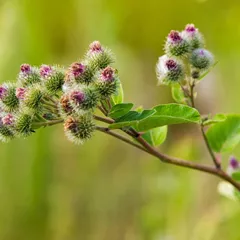Bu Fei E Jiao Tang
Chinese: 补肺阿胶汤
Pinyin: Bǔ Fèi Ē Jiāo Tāng
Other names: Tonify the Lungs Decoction with Ass-Hide Gelatin




Bu Fei E Jiao Tang
Chinese: 补肺阿胶汤
Pinyin: Bǔ Fèi Ē Jiāo Tāng
Other names: Tonify the Lungs Decoction with Ass-Hide Gelatin
Ingredients: 6 herbs
Category: Formulas that nourish Yin and tonify
- Nourishes the Yin
- Controls coughing
- Stops bleeding
- Tonifies the Lungs
Contraindications: Contraindicated for patients with Lung Deficiency without Heat, when there is... Contraindicated for patients with Lung Deficiency without Heat, when there is any cold in the Exterior, or when there in internal Phlegm. see more
Source: Craft of Medicinal Treatment for Childhood Disease Patterns (1119 AD )
The information provided here is not a replacement for a doctor. You shouldn't use it for the purpose of self-diagnosing or self-medicating but rather so you can have a more informed discussion with a professional TCM practitioner.
Bu Fei E Jiao Tang is a 6-ingredient Chinese Medicine formula with Donkey-Hide Gelatin (E Jiao) as a principal ingredient.
Invented in 1119 AD, it belongs to the category of formulas that nourish Yin and tonify. Its main actions are: 1) nourishes the Yin and 2) controls coughing.
In Chinese Medicine health conditions are thought to arise due to "disharmonies" in the body as a system. These disharmonies are called "patterns" and the very purpose of herbal formulas is to fight them in order to restore the body's harmony.
In this case Bu Fei E Jiao Tang is used by TCM practitioners to fight patterns like Lung Yin Deficiency. From a Western Medicine standpoint, such patterns can give rise to a range of conditions such as chronic bronchitis, bronchiectasis or pulmonary tuberculosis for instance.
On this page, after a detailed description of each of the six ingredients in Bu Fei E Jiao Tang, we review the patterns and conditions that Bu Fei E Jiao Tang helps treat.
The six ingredients in Bu Fei E Jiao Tang

E Jiao is a king ingredient in Bu Fei E Jiao Tang. Like the name indicates, it means it has more power than other ingredients in the formula.
1. Donkey-Hide Gelatin (E Jiao)
Part used: Solid glue prepared from the dried or fresh skin of donkeys
Nature: Neutral
Taste(s): Sweet
Meridian affinity: KidneyLiverLung
Category: Herbs that invigorate the Blood
In general E Jiao's main actions are as follows: "Tonifies and nourishes Blood. Stops bleeding. Moistens and lubricates Yin."
In the context of Bu Fei E Jiao Tang, it is used because it nourishes the Yin and tonifies the Lungs, stops the bleeding, and nourishes the Blood.

Ma Dou Ling is a deputy ingredient in Bu Fei E Jiao Tang. This means it helps the king ingredient(s) treat the main pattern or it serves to treat a coexisting pattern.
2. Aristolochia Fruits (Ma Dou Ling)
Part used: Fruits
Nature: Cold
Taste(s): Bitter
Meridian affinity: Large intestineLung
Category: Herbs that relieve coughing and wheezing
In general Ma Dou Ling's main actions are as follows: "Opens the Lungs and transforms Phlegm. Clears Heat in the Lungs so as to treat cough caused by Heat or Deficiency. Lowers blood pressure for hypertension."
In the context of Bu Fei E Jiao Tang, it is used because it clears Heat and stops the coughing.

Xing Ren is a deputy ingredient in Bu Fei E Jiao Tang. This means it helps the king ingredient(s) treat the main pattern or it serves to treat a coexisting pattern.
3. Apricot Seeds (Xing Ren)
Part used: Dried ripe seeds
Nature: Warm
Meridian affinity: Large intestineLung
Category: Herbs that relieve coughing and wheezing
In general Xing Ren's main actions are as follows: "Stops cough and wheezing caused by either Heat or Cold. Lubricates the Intestines and relieves constipation."
In the context of Bu Fei E Jiao Tang, it is used because it descends the Lung Qi and calms the wheezing.

Niu Bang Zi is a deputy ingredient in Bu Fei E Jiao Tang. This means it helps the king ingredient(s) treat the main pattern or it serves to treat a coexisting pattern.
4. Greater Burdock Fruits (Niu Bang Zi)
In general Niu Bang Zi's main actions are as follows: "Relieves the Exterior and disperses Heat. Allows the release of toxicity from the surface and clears Heat. Reduces swelling and clears pathogenic Heat. Lubricates the Intestines. Relieves sore throat."
In the context of Bu Fei E Jiao Tang, it is used because it spreads the Lung Qi and unblocks areas of congestion in the throat.

Nuo Mi is an assistant ingredient in Bu Fei E Jiao Tang. This means that it either serves to reinforces the effect of other ingredients or it moderates their toxicity.
5. Glutinous Rice (Nuo Mi)
Part used: The seeds
Nature: Warm
Taste(s): Sweet
Meridian affinity: SpleenStomachLung
Category: Tonic herbs for Qi Deficiency
Nuo Mi tonifies the Spleen and benefit the Lungs. The combination of Glutinous rice and Liquorice cultivates the earth (Spleen) to generate metal (Lungs) in order to tonify the Lungs and prevents
the other herbs from disrupting the digestive process.

Gan Cao is an assistant ingredient in Bu Fei E Jiao Tang. This means that it either serves to reinforces the effect of other ingredients or it moderates their toxicity.
6. Liquorice (Gan Cao)
Part used: Dried root and rhizome
Nature: Neutral
Taste(s): Sweet
Meridian affinity: HeartLungSpleenStomach
Category: Tonic herbs for Qi Deficiency
Gan Cao tonifies the Spleen and benefit the Lungs. The combination of Glutinous rice and Liquorice cultivates the earth (Spleen) to generate metal (Lungs) in order to tonify the Lungs and prevents
the other herbs from disrupting the digestive process.
Bu Fei E Jiao Tang is used to treat Lung Yin Deficiency
It's important to remember that herbal formulas are meant to treat patterns, not "diseases" as understood in Western Medicine. According to Chinese Medicine patterns, which are disruptions to the body as a system, are the underlying root cause for diseases and conditions.
As such Bu Fei E Jiao Tang is mostly used to treat the pattern "Lung Yin Deficiency" which we describe below.
But before we delve into Lung Yin Deficiency here is an overview of the Western conditions it is commonly associated with:
Chronic bronchitis Bronchiectasis Pulmonary tuberculosis Chronic pharyngitis
Again it wouldn't be correct to say "Bu Fei E Jiao Tang treats chronic bronchitis" for instance. Rather, Bu Fei E Jiao Tang is used to treat Lung Yin Deficiency, which is sometimes the root cause behind chronic bronchitis.
Now let's look at Lung Yin Deficiency, a pattern that TCM practitioners commonly treat with Bu Fei E Jiao Tang.

The Lungs is a so-called "Zang" Organ. Learn more about the Lungs in Chinese Medicine
Lung Yin Deficiency
Pulse type(s): Rapid (Shu), Empty (Xu), Floating (Fu)
Tongue coating: Complete absence of coating
Tongue color: Red
Symptoms: Insomnia Red lips Dry cough Dry mouth Tiredness Thin chest Weak voice Dry throat Depression Blood spit Chest pain Malar flush Hoarse voice Night sweats Tickly throat Frequent sighing Aversion to speak Hot palms and soles Shortness of breath Thin body lacking strength Feeling of heat in the afternoon Low-grade fever in the afternoon
Bu Fei E Jiao Tang is sometimes prescribed by TCM practitioners to treat Lung Yin Deficiency. This pattern leads to symptoms such as hoarse voice, tickly throat, aversion to speak and thin chest. Patients with Lung Yin Deficiency typically exhibit rapid (Shu), empty (Xu) or floating (Fu) pulses as well as Normal or red color with no coating.
Exterior Heat and Dryness can invade the Lungs and exhausts the Body Fluids. If it is not dealt with for a long time, it leads to Lung Yin Deficiency. Typical manifestations are dry cough, throat and mouth, aversion to speak as well as Hoarse voice.
Other factors can cause this pattern such as the... read more about Lung Yin Deficiency
Formulas similar to Bu Fei E Jiao Tang
Ma Huang Tang is 33% similar to Bu Fei E Jiao Tang
Ma Xing Shi Gan Tang is 33% similar to Bu Fei E Jiao Tang
Qing Zao Jiu Fei Tang is 33% similar to Bu Fei E Jiao Tang
Da Qing Long Tang is 29% similar to Bu Fei E Jiao Tang
Tiao Gan Tang is 29% similar to Bu Fei E Jiao Tang
Huang Tu Tang is 29% similar to Bu Fei E Jiao Tang












